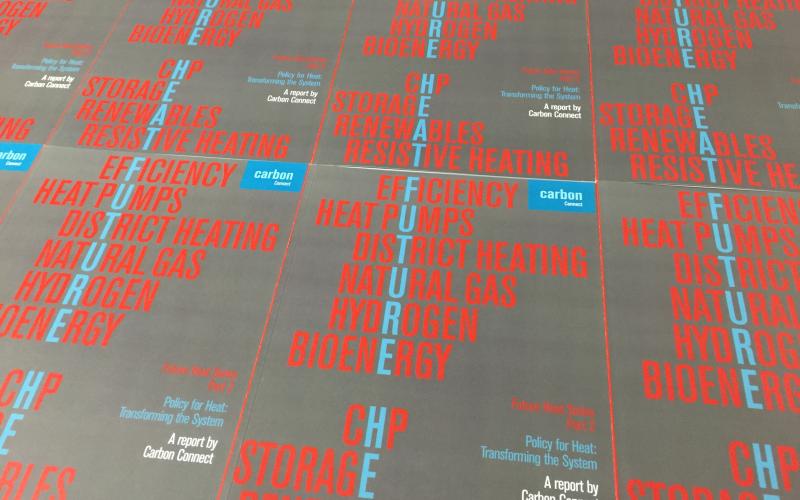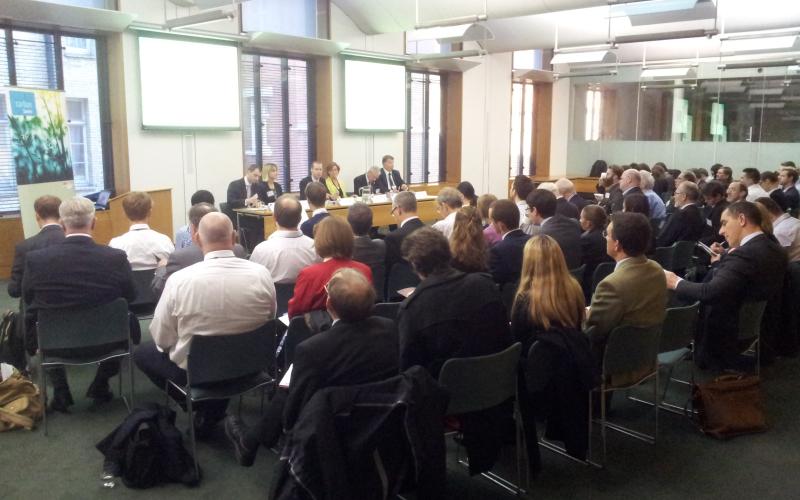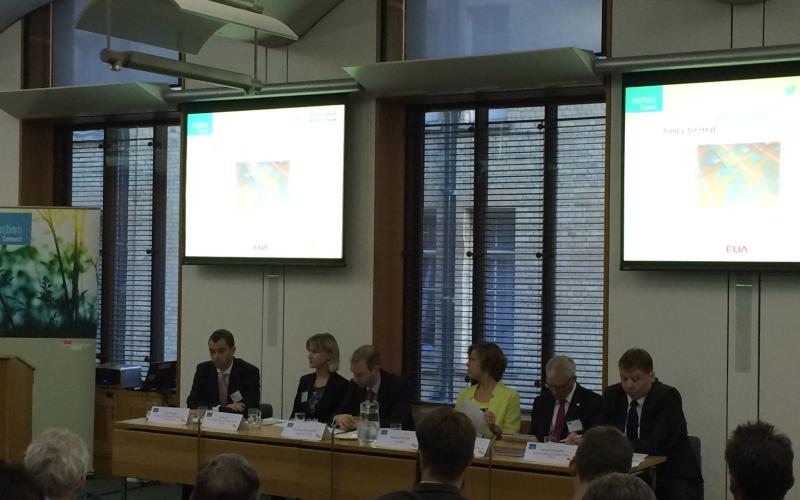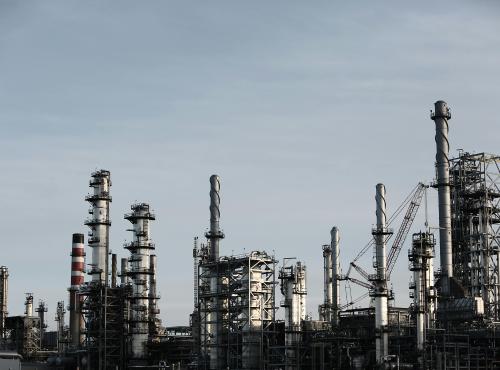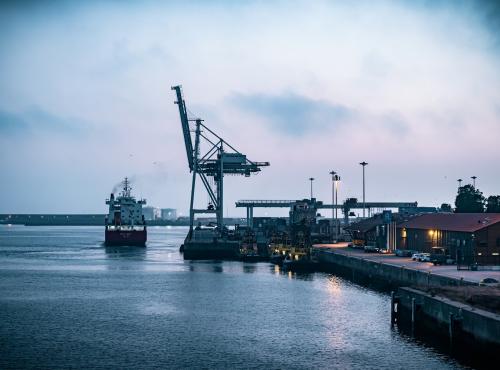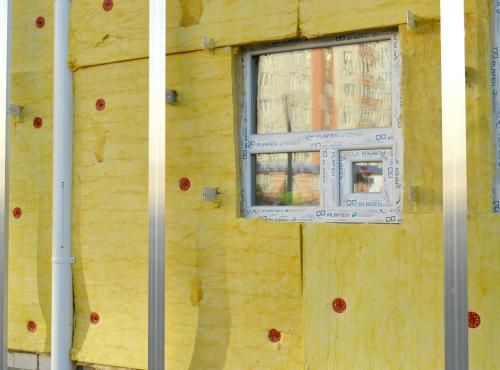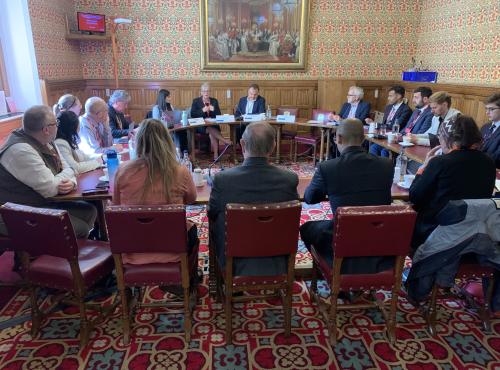Report: Future Heat Series Part 2 - Policy for Heat
Policy for Heat: Transforming the System, urges Government to implement an ambitious, long-term decarbonisation strategy for the heat sector, before it’s too late in new inquiry report.
The report builds on the work of Part 1 in the Future Heat Series which compared recent decarbonisation pathways and analyses to indentify and highlight key policy mechanisms and transistions that are needed in order to decarbonise heat for buildings by 2050.
Chaired by Shadow Energy Minister, Jonathan Reynolds MP, and Conservative MP Rebecca Pow (and also previous MP and member of the Energy and Climate Change Select Committee, Dan Byles MP until he stood down at the General Election), the report is written by cross-party think tank group, Carbon Connect. The report was published in Parliament at a cross-party debate on Wednesday, 14th October.
Sponsored by Energy & Utilities Alliance (EUA) and the Institution of Gas Engineers and Managers (IGEM), the report is the second in a cross-party and independent inquiry series.
- About the Future Heat Series
- Future Heat Series 1 Inquiry launch conference
- Pathways for heat press release
Summary
‘Policy for Heat: Transforming the System’ urges Government to implement an ambitious, long-term decarbonisation strategy for the heat sector, before it’s too late . The report highlights that the Government needs to urgently produce and implement long term policy frameworks for the provision of low carbon heating and energy efficiency in buildings.
Put simply: heat for buildings needs to be decarbonised if the UK is to meet its 2050 carbon budgets and end fuel poverty. According to the new official Government figures and definitions of fuel poverty there are currently 2.35 million households in fuel poverty in England alone. This is 10% of all households in England. The report states that greater integration between the approaches to low carbon heat, energy efficiency and new build homes is essential to decarbonise heat for buildings, but also to more effectively target fuel poverty.
Another key finding in the report is on the role of local authorities. The report asks for more involvement for Local Authorities in energy planning, the provision of low carbon heat and energy efficiency programmes.
Although the pathways analysed in the previous report showed a large drop in the activity of the gas industry, this report calls on the Government to do more to understand the future role of the gas network, and to develop strategies for the uses of low carbon gasses to combat the issue of peak heat demand. There is also the possibility for a greater expansion of district heat networks, and the report states that the Government needs to do more to set targets and provide more certainty for companies looking to invest in district heating.
‘Transforming the System’ brought together a wide cross-section of industry and business members, academics and experts in the field in order to lay out a set of policies that could help the UK’s government decarbonise the heat system in the UK in a cost-effective way.
There are real business opportunities for renewable and low carbon heating technologies to grow, but the Government needs to provide the long-term, policy certainty necessary for the industry to flourish.
Reaction
“The premise of these reports has always been that it Parliament and the Government needs to start to address the issues of low carbon heat, even though it is a very difficult subject. Since we began this piece of work it has got even harder – it wasn’t easy, but it has got even harder – there’s a lot more policy uncertainty for things like the Green Deal going, the Zero Carbon Homes changing and there’s clearly a strong sense of that being felt in the country”
Jonathan Reynolds MP
“These policies and the ideas in this report will help us go another step – they might hopefully help us go from just talking about policy to doing it.”
Rebecca Pow MP
“I think from the Government’s point of view we welcome the report, it’s a very helpful contribution to the debate, and I think this is an area that is very likely to be very important over the course of the next Parliament and the next five years”
Dan Osgood - Director of Heat, the Department for Energy and Climate Change
“This report is a positive contribution to debate. I think it’s starting to identify the challenges of the some of the pathways for the first time, and I think of particular note is that the report starts to address and tackle the thorny issues around affordability and security of supply and I think that was absent from previous research.”
Chris Clarke - President, IGEM
“We’re quite excited by the common-sense attitude that has been taken, which is great to see”
Stewart Clements - Director, HHIC
“We welcome this report which shares a number valuable insights when thinking about heat decarbonisation. It’s also timely in its focus on this given the spending review that is currently ongoing. We are planning more work in this area later this year. As such it’s great to have a report that’s a really good starting point and there’s a lot that the Committee would support”
Jenny Hill - Senior Analyst, The Committee on Climate Change
The Future Heat Series is kindly sponsored by IGEM.
The first inquiry of the series is kindly sponsored by the Energy & Utilities Alliance.
